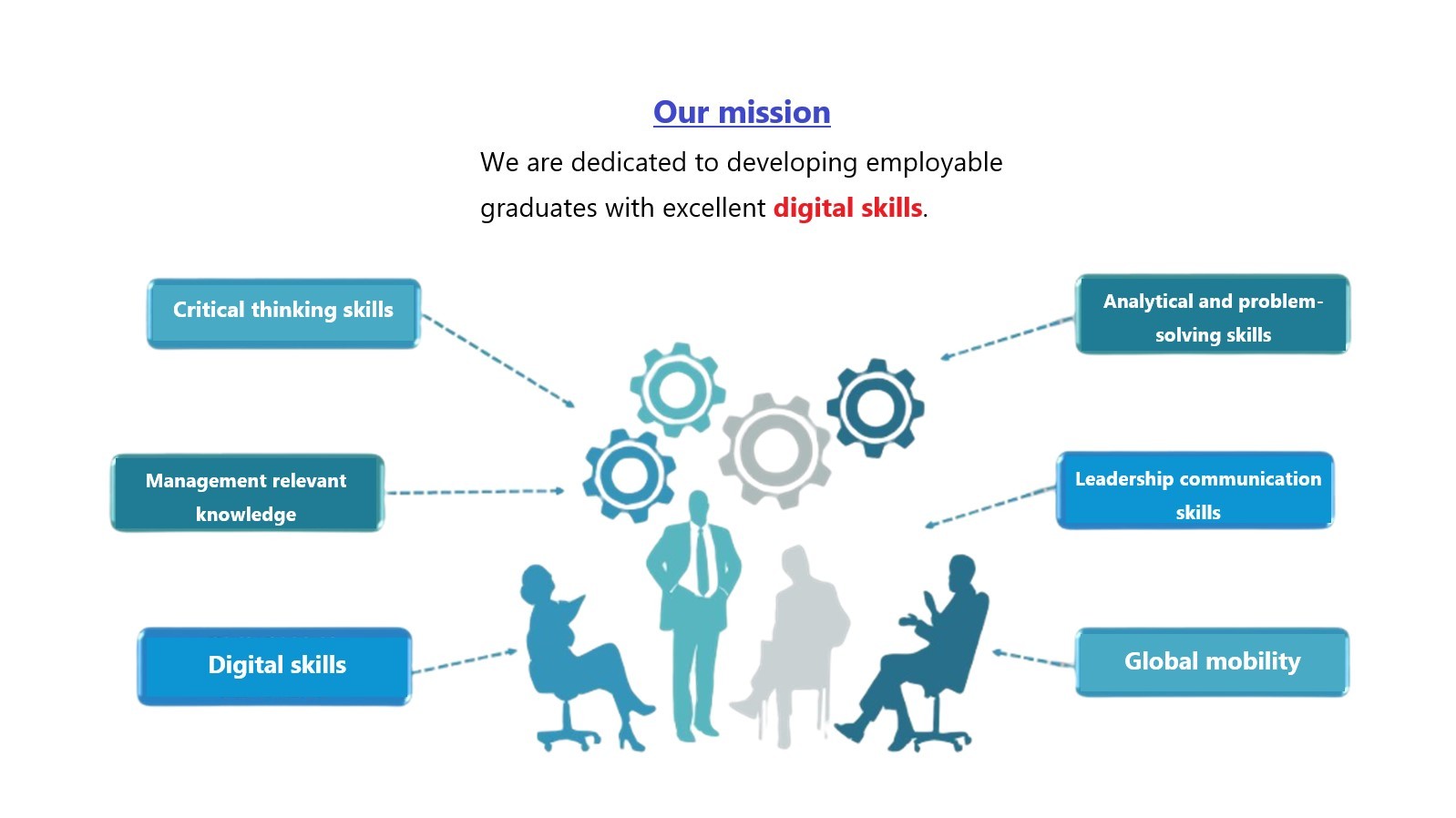


Digital technology has been an important driver of paradigm shifts in business. The development and application of digital technology have led to significant changes across industries in various countries. Although these changes created business opportunities and spawned innovative business models, they also increased the demand for talents in digital transformation. Companies are doing everything possible to fill the shortage of talents caused by the paradigm shift in digital technology.
The Department of Business Administration of Taipei Tech (formerly known as the Institute of Business Automation and Management) is established in August 1998. Recognizing the disruption from digital technology, our department examined the impact of digital technology on different disciplines of business management and reviewed the department’s focus and curriculum design. After a year of discussions and consultations with industry experts and alumni leaders, our new curriculum was finalized in the second semester of the 2010 academic year with the goal of "cultivating management talents in the digital age." The new curriculum launched starting in the 2011 academic year for our three academic programs (undergraduate, full time and part-time master’s program) with these highlights:
Through the design of curriculum modules based on digital transformation, the new curriculum deepens the professional training of students of various academic systems in the application of digital technology in multiple fields. The new curriculum links leading companies in various industries with corporate internships that strengthen the professional knowledge and skills taught in the course. It provides applied training on topics such as digital marketing, digital transformation, business data analysis, and decision science, combined with industry knowledge such as on service technology, corporate finance, human resources and organizational strategies, to comprehensively train management talents in the digital era. The new curriculum is complemented with training in Python, R, IBM SPSS Modeler, SAS Viya, and other related software tools to seamlessly integrate with enterprise applications.
Through the design of curriculum modules based on digital transformation, the goal of this department is to increase the interaction and cooperation between students and industries. We also hope to increase students' employment competitiveness in various industries through specialized training relevant to digital technology.